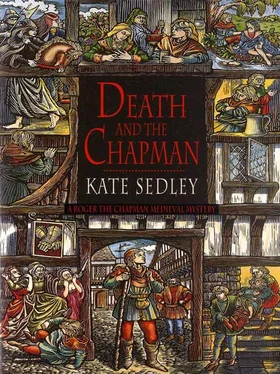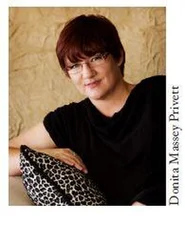Kate Sedley - Death and the Chapman
Здесь есть возможность читать онлайн «Kate Sedley - Death and the Chapman» весь текст электронной книги совершенно бесплатно (целиком полную версию без сокращений). В некоторых случаях можно слушать аудио, скачать через торрент в формате fb2 и присутствует краткое содержание. Жанр: Исторический детектив, на английском языке. Описание произведения, (предисловие) а так же отзывы посетителей доступны на портале библиотеки ЛибКат.
- Название:Death and the Chapman
- Автор:
- Жанр:
- Год:неизвестен
- ISBN:нет данных
- Рейтинг книги:4 / 5. Голосов: 1
-
Избранное:Добавить в избранное
- Отзывы:
-
Ваша оценка:
- 80
- 1
- 2
- 3
- 4
- 5
Death and the Chapman: краткое содержание, описание и аннотация
Предлагаем к чтению аннотацию, описание, краткое содержание или предисловие (зависит от того, что написал сам автор книги «Death and the Chapman»). Если вы не нашли необходимую информацию о книге — напишите в комментариях, мы постараемся отыскать её.
Death and the Chapman — читать онлайн бесплатно полную книгу (весь текст) целиком
Ниже представлен текст книги, разбитый по страницам. Система сохранения места последней прочитанной страницы, позволяет с удобством читать онлайн бесплатно книгу «Death and the Chapman», без необходимости каждый раз заново искать на чём Вы остановились. Поставьте закладку, и сможете в любой момент перейти на страницу, на которой закончили чтение.
Интервал:
Закладка:
‘But surely,’ I argued, ‘Sir Richard must have intended to return. He left the horses.’
‘Which Sir Gregory took away,’ was the vicious retort. ‘A pox on him!’
‘He’s dead,’ I answered shortly.
Martin Trollope eyed me narrowly. ‘You seem to know a lot about it.’
‘Lady Mallory’s maid was very loquacious.’
‘“Loquacious”, is it?’ he sneered. ‘That’s a big word for a common chapman.’
I thought it time to go. I had no wish to arouse his suspicions until I had gathered a good deal more information than I had at present. And I couldn’t conceal from myself that I found his attitude somewhat disappointing. He had not started guiltily on hearing me pronounce Sir Richard Mallory’s name; on the other hand, he did strike me as a man who was hiding something. I couldn’t say exactly what it was that made me feel this way, except for his general air of uneasiness and his dislike of strangers hanging around the inn. A chapman could not be an unusual sight, and it was not what I was that had attracted his attention. No; I was convinced it was the fact that I had been staring up at that particular window, and with such concentrated attention, which had brought Martin Trollope hotfoot outside to move me on.
‘I’ll be going, then, ‘ I said, and took a few steps towards the corner of the street before turning to glance once again at the casement just above our heads.
This time his reaction was far more rewarding. ‘Get away!’ he commanded furiously; and I knew then that Martin Trollope’s had been the voice which had shouted ‘Get back!‘ that morning.
‘God be with you,’ I answered magnanimously and turned, well satisfied, into Thames Street.
As I pushed my way along that crowded thoroughfare, however, I was conscious that something was nagging at the corners of my mind; some little fact which was troubling me and making me uneasy. But the more I tried to pin it down, the more elusive it became, dodging in and out of other thoughts which obscured it. By the time I had been sworn at by three passers-by for not looking where I was going, I knew I should have to let it go, at least for now, and trust that the puzzle would resolve itself presently.
And I had work to do. I set out resolutely for the Cheap.
West Cheap, or Cheapside, is also known simply as The Street, because it’s so famous. I don’t suppose there’s a soul in the whole of England, then as now, who hasn’t heard of it. It’s not what it was when I was young, but as I’ve remarked before, that goes without saying. My children and grandchildren will feel the same when they’re my age. But when I first saw it, in that October of 1471, I thought it must be the most magical place in the whole wide world.
Cheap, of course, comes from the old Saxon word ‘chipping’, meaning a market: there was nothing cheap, in its current usage, about The Street. There were shops stuffed with silks and carpets, tapestries brought from Arras, gold and silver cups and plates, the most magnificent jewellery. My eyes were dazzled and I felt like a child in fairyland, in spite of the fact that it is heresy to believe in the little people. (But then, for someone who still half acknowledges the existence of Robin Goodfellow and Hodekin and the terrible Green Man, how can I not believe in the world of fairies?) A conduit — the Great Conduit, I heard it called — brought fresh spring water all the way from Paddington, still smelling of herbs from the village meadows. There were grocers’ and apothecaries’ shops; and I saw grey Bristol soap being sold at a penny the pound, less than half the price of the hard white Castilian. The ordinary black liquid soap was only a halfpenny.
There was the Standard, originally made of wood, now being rebuilt in stone, where Lord Say had been murdered by the followers of Jack Cade twenty-one years previously; the church of St Mary-le-Bow with its famous bell, so called because it was raised on arches; the great cross erected by King Edward the first, presently being rebuilt at a cost of well over a thousand pounds through the generosity of the capital’s citizens. There was the Mercers’ Hall situated along the north side, and the beautifully painted and decorated houses of the merchants. There was … But I could go on boring you for ever with the wonders of that part of London. All I can say is that since that day, I have met many people, including foreigners, who speak with awe of Cheapside, its wares and its treasures.
I thought I should be unable to sell much there, and was thinking of moving on, when I had my first customer. After that, it was easy. I had never before sold as much in a couple of hours as I did that afternoon. I realized after a while that people came to the Cheap to buy and were therefore in a spending mood. They didn’t much care who they bought from, provided they could afford what was on offer. And my wares were undoubtedly cheaper than those on display in the shops. I attracted the poorer citizens by the dozens.
Mind you, I don’t say that my appearance didn’t have something to do with it. A lot of my customers were women; and if that sounds boastful, I’m sorry, but it happens to be the truth. I’ve always believed in using the gifts God gave you, and trading on my good looks to gain an advantage over my competitors never worried me or made me feel ashamed. I flirted with the younger women and flattered the older ones — another proof, if you need any more, that I was unsuited for a life of self-abnegation.
When the church bells began tolling for Vespers, I packed my remaining wares into my pack and prepared to walk back to Crooked Lane, thinking hungrily of my supper. The fragrance of Thomas Prynne’s delicious stew lingered in my nostrils, making my mouth water in anticipation, and I set off for the Baptist’s Head with a swinging stride and a light heart, remembering the good business I had done that afternoon. It was still chilly, and remnants of the morning’s frost hung about the streets like grimy cobwebs. But storm clouds were gathering. It would not be so cold that night and might even rain.
London continued to bewilder me, and although I knew I must be moving in the right direction, I nevertheless managed to lose my way. I suddenly found myself facing a huge and forbidding stone building, which seemed to my inexperienced eyes to be a fortress of some description. There were three massive arched gates fronting on to the street, and two of them were locked. At the third, carts were drawn up, loading or unloading goods, and I realized suddenly that this must be the Steelyard, home of those Hanseatic merchants who were the descendants of German traders established by the Saxon kings in Dowgate. I knew of their reputation from Marjorie Dyer, who had told me all about them that evening in Bristol; how the Easterlings lived a celibate life, with no women allowed inside the Steelyard walls; how they had their own two Aldermen to represent them in the city government; how they stayed aloof from other Londoners; how they held a monopoly of the Baltic trade. In the event of an attack upon the capital, they were responsible for the defence of Bishopsgate, and consequently kept, or so the story went, a suit of armour in every room.
It was while I was staring — gawking, my mother would have called it — at this imposing edifice, like a true rustic unused to such sights, that I found my eyes focused on one of the carters, who, with an assistant, was unloading great bales of cloth. There was something familiar about the man’s face, but I could not immediately recall where I had seen him before. Then, as though becoming aware of my scrutiny, he turned his head in my direction, and I recognized him as the carter employed by Alderman Weaver for the transport of his cloth to London. I went over, waiting patiently by the horse’s head until he should be free to speak.
Читать дальшеИнтервал:
Закладка:
Похожие книги на «Death and the Chapman»
Представляем Вашему вниманию похожие книги на «Death and the Chapman» списком для выбора. Мы отобрали схожую по названию и смыслу литературу в надежде предоставить читателям больше вариантов отыскать новые, интересные, ещё непрочитанные произведения.
Обсуждение, отзывы о книге «Death and the Chapman» и просто собственные мнения читателей. Оставьте ваши комментарии, напишите, что Вы думаете о произведении, его смысле или главных героях. Укажите что конкретно понравилось, а что нет, и почему Вы так считаете.












